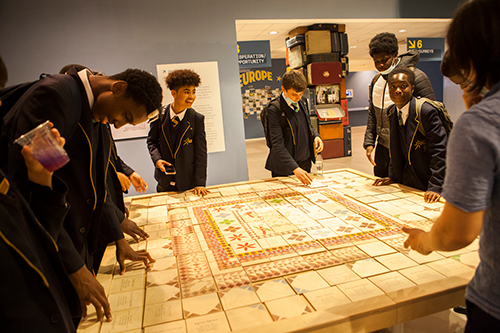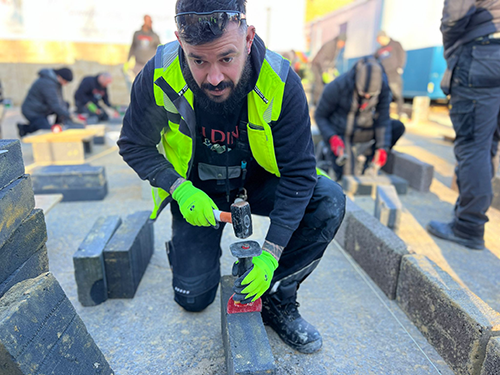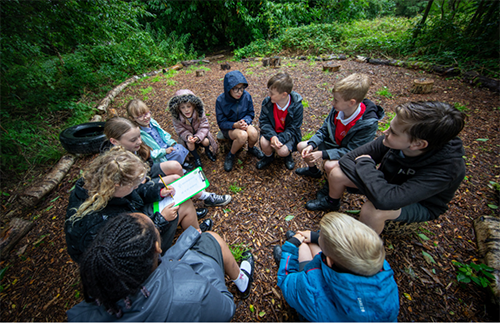Education and Training 2024 winners: The Migration Museum
Why they won
- Innovation: No such resource existed before the Museum was set up
- Sustainability: The training of teachers in how to teach about such a potentially contentious and inflammatory subject will ensure that future intakes of pupils also engage with the topic
- Service-user involvement: The focus on storytelling ensures that people with lived experience are integral to the project
The Migration Museum was set up to establish what it refers to as “Britain’s missing museum” – namely one that put Britain’s migration story at centre stage.

Credit Elzbieta Piekacz, Migration Museum
Its team creates resources and runs workshops at its exhibition space in London, and by travelling to schools or delivering online sessions, to facilitate informed conversation around migration among children and young people. It also trains teachers how to approach teaching about migration across all parts of the curriculum. It leads with individual migration stories with an emphasis on lived experience.
All its sessions are conducted in a circle, with the aim that all participants and facilitators are equal within the session.
Since 2020, the Museum has reached some 17,500 students, mainly secondary and key stage 4 but also some younger children. Some 84% of students said they found the workshops highly educational, 76% of students found their visit engaging and 81% said that they had a better understanding of migration after participating in museum activities.
Feedback shows that 100% of teachers were satisfied with the content and relevance of the workshops.
Each workshop costs £260 to run, and the charity charges schools £150 where they can afford it.
The charity has a partnership with the Teachfirst Summer Project to engage in coproduction of learning materials and to help in its understanding of the support needed by teachers.
It also shares best practice through its Migration Network, which includes hundreds of people from institutions within museums, galleries, and the charity and education sectors.
Charity Awards judge Karin Woodley, chief executive of Cambridge House, said the project was innovative in that it approaches the subject of migration in terms of the development of the UK, rather than focusing on individual migrant populations. It was a “difficult and potentially contentious area of work with excellent knowledge-sharing and outcomes,” she said.
“The other thing that’s unusual, and very hard to do in schools, is the cross-curriculum approach – training teachers to understand that migrant history across all areas of the curriculum.”
Judge André Clarke, director of charity development at Lloyds Bank Foundation, added that the use of storytelling is both simple and powerful, and highlighted the importance of the project “in the context of the current toxic and inflammatory conversation about migration”.
CC reg no. 1153774
Building Heroes Education Foundation
The Building Heroes Education Foundation works with the education sector, Armed Forces, and construction industry to help ex-servicepeople and their family members requalify and find work in construction. Some 99% of applicants complete the Building Heroes programme and obtain civilian qualifications and 73% of graduates transition into employment, self-employment, or pursue further training in construction or property maintenance. Over 10 years, more than 3,000 people have graduated from the foundation’s training programmes.
Keep Britain Tidy
Eco-Schools is a global programme, which in England is run by the environmental charity Keep Britain Tidy. It is the most successful in the world, accounting for more than 20% of all Eco-Schools globally. In 2022-23, more than 1.4 million pupils attended a school taking part in the programme in England. As part of the programme, 1.65 million square metres of natural habitats were created or maintained, and 1,969 schools and nurseries signed up to a Cut Your Carbon challenge. It cost £441,043, which equates to 32p per young person taking part, or 27p per m² of natural habitat protected.



